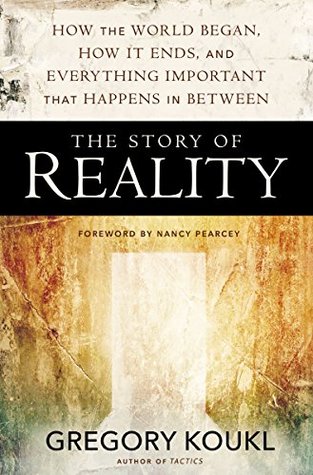More on this book
Community
Kindle Notes & Highlights
Read between
February 23 - March 29, 2019
Faith is our step of trust to rely on what we have good reaso...
This highlight has been truncated due to consecutive passage length restrictions.
Never trust anyone who tells you to rely on experience over careful thinking. “Look before you leap” is sage advice. It applies especially to leaps of faith. Feelings are important. They make life beautiful. But careful thinking—reason—makes life safe.
You do not change the way you live in order to get on Jesus’ path. Rather, getting on Jesus’ path will change the way you live.
You do not have to believe the documents are inspired in order to learn history from them. Since all the history that you and I think we know (and probably do know) comes from records written by ordinary people and not the hand of God, it ought to be clear we can do good history without bringing God into the discussion in that way.
The history of the Holocaust was written largely by its survivors. Should we doubt their accounts simply because these victims were also “believers” or because they had an “agenda,” an intent to tell the world of this horrific event?
Christians could be trusted precisely because they had a stake in the matter, in an odd sort of way—they staked their lives on the Story’s accuracy.
Common sense tells us that men will not suffer martyrdom for myths they make up themselves.
Do you want the right answers—that is, do you want to get clear on what actually happened that weekend in ancient Palestine—or do you merely want the right kind of answers, answers that fit your own agenda, regardless of evidence to the contrary? I think you can see the problem.
Nowadays, the vast majority of scholars on the life of Jesus—including those who are entirely secular and have no religious stake in the matter—agree to four facts of history. First, Jesus died on a Roman cross on Friday and was buried in a tomb. Second, that tomb was empty Sunday morning. Third, numerous witnesses testified—at great peril to themselves—that they saw Jesus alive multiple times after he had died, that they met with him and even ate with him. Finally, even the skeptic, James, and the mortal enemy of Christians, Saul of Tarsus, were convinced they had seen Jesus risen from the
...more
there is no question that Jesus was dead. The Romans killed him.
Two–thirds to three-quarters of all scholars in the field agree that Jesus’ tomb was empty.
There is no record of any kind that the empty tomb was ever disputed by anyone, even those who had Jesus executed in the first place. Corpses decay more slowly in the arid environment of Palestine. Jesus’ body could still probably be identified even after decomposing for more than a month.11 Why did
no one produce the remains and end the controversy? Present the corpse, end the issu...
This highlight has been truncated due to consecutive passage length restrictions.
Some at the time did claim the disciples ...
This highlight has been truncated due to consecutive passage length restrictions.
But does that seem likely to you? Note, first, the charge is a clear admission by enemies of Jesus that there was no body. More to the point, what good would it do the disciples to steal Jesus’ remains, then lie about a resurrection? The basic rule with lying is this: Invent a story that benefits you, not one that gets you beaten, whipped, stoned, crucified upside down, or beheaded.
You might think they imagined they saw Christ, but didn’t really.
But how exactly would that work in this case? It is hard to believe that so many different people—even complete skeptics—in different locations, at different times, as individuals and in groups, over more than a month, could have had the same hallucination about the same person who they all were quite certain (for good reason) had been killed and buried just days or weeks before.
Hallucinations are entirely private experiences,
just like dreams. People imagine things, after all, in their imaginations. You might tell someone about your vision or your apparition or your hallucination or whatever, but they cannot join you in it, even if they wanted to (which doubters like James and Saul certainly did not). Since these kinds of delusions are in someone’s head, so to speak, and not, say, in the room or at the seashore or on the mountaintop, they cannot be shared with those standing about, especially if the onlookers are skeptical to begin with.
If it is unlikely you can wake your wife and invite her to share in a particularly pleasant dream you just enjoyed, it is equally unlikely the disciples shared a commo...
This highlight has been truncated due to consecutive passage length restrictions.
there is not a crime against God that does not go unpunished, and there is not a crime against God that cannot—because of the Rescuer—be forgiven.
The Story has five elements: God, man, Jesus, cross, and resurrection. It’s a story I can tell in a single sentence, though it’s a bit long. Here it is: God, the Creator of the universe, in order to rescue man from punishment for his rebellion, came to earth and took on humanity in Jesus, the Savior, to die on a cross and rise from the dead, so that in the final resurrection those who receive his mercy will enjoy a wonderful friendship with their sovereign Lord in the kind of perfect world their hearts have always yearned for.
If you are a Christian, this is your story. If you are not a Christian, this is also your story,
because this isn’t a religious fairytale. This is the Story of the w...
This highlight has been truncated due to consecutive passage length restrictions.


